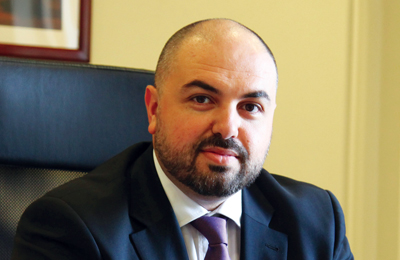Building a personal brand – should you bother?

How can in-house lawyers add value by building their personal brands? David Galea delves deep into the fundamental elements…
The role of an in-house lawyer is rarely connected with sales. Selling is the realm of the commercial team. By the same measure, branding is the realm of marketing and our role is to make sure the corporate brand is not exposed to reputational or other risk. However, if in the age of social media, we still think in this way we are doing ourselves, our teams and our profession a disservice.
In the book ‘To Sell is Human’ Daniel H. Pink posits that, “People are now spending about 40 per cent of their time at work engaged in non-sales selling … persuading, influencing and convincing others in ways that don’t involve anyone making a purchase. Across a range of professions we are devoting roughly twenty-four minutes of every hour to moving others. People consider this aspect of their work crucial to their professional success – even in excess of the considerable amount of time they devote to it.”
The importance of a brand is neither new, nor ground-breaking, but in the era of doing more with less, where a focus must be on debunking the myth of the legal department being just another cost centre, making sure that your value proposition is clear within and outside of your organisation becomes critically important. Some of us have had this issue for eons. Melanie Hatton put it quite clearly and succinctly in a blog post seven years ago, “As sole in-house counsel to a business which previously had no lawyer working in it, a large part of my time is making sure my colleagues understand the broader commercial value which a lawyer can bring to the business and that we’re not just here to fire-fight any disputes, check contracts or create red-tape and obstacles!”
In the words of Amazon’s CEO, Jeff Bezos, “Your brand is what other people say about you when you’re not in the room.” Working on your personal brand allows you, to some extent, to exert an element of influence over that message and to shape that conversation. Developing a personal brand is more than letting your reputation speak for itself; it’s taking that a step further through strategic and proactive efforts in positioning yourself, your talents and your unique value proposition to your target audience (which could be within your organisation and beyond it). The benefits are many. An organisation that knows its lawyers and the value that they bring to the business functions better, empowers its legal team to do more and be more. Lawyers get to go beyond the confines of their job description and contribute more. Consequently, motivation increases and productivity improves.
There is no single magic formula to developing a personal brand but there are elements that are fundamental.
So what are these elements?
- Passion – what ignites that passion within? What part of your job do you love the most?
- Superpowers – what do you do really well (better than most people you know)?
- Values – what are your operating principles? What situations make you feel angry/annoyed?
- Purpose – how do you want to make a contribution to the world around you?
- Differentiation – how are you different?
- Authenticity – This is your strategic projection of yourself to your “market”. If it doesn’t ring true with you, it won’t with others!
When you have a concrete picture of what you want to portray, the next step is getting the message across to your target audience. Deliver regular and consistent messaging. Post on social media, create a blog, engage colleagues in conversation, network extensively or seek those speaking opportunities. Play to your strengths, stretch outside your comfort zone and above all focus some time on your most important asset – YOU!
Columnist:
David Galea, head of legal and company secretary, Drydocks World














































































































